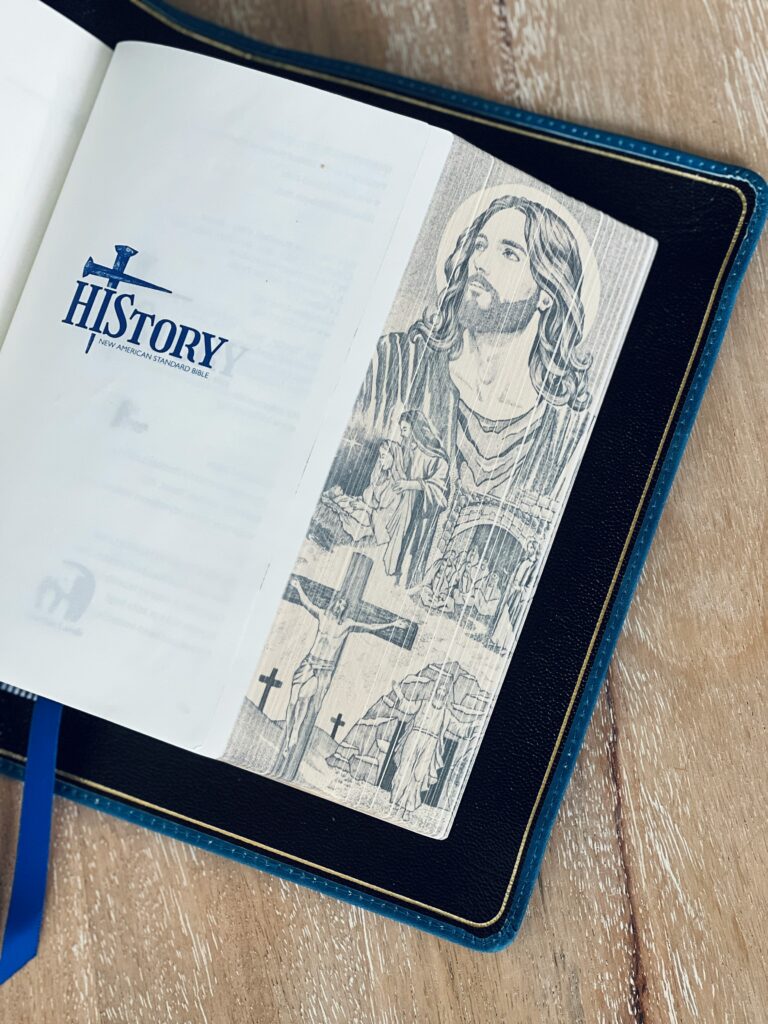
Unveiling the past and unraveling the threads of history is an adventure that can truly captivate the mind. It’s like a voyage through time, visiting epochs and eras that have shaped the world we live in today. This post takes a fascinating journey into the realm of free online history classes, where the past becomes vividly alive in the present. Here’s an opportunity to delve deep into the riveting stories and significant events that have left an indelible mark on human civilization.
The appeal of online history classes is twofold – not only do they offer a wealth of knowledge about our ancestors and their way of life, but they also provide the convenience of learning at one’s own pace. Through digital platforms, history buffs and curious learners can explore diverse topics that range from ancient civilizations to contemporary global issues. It’s the perfect fusion of modern technology and timeless wisdom.
This comprehensive guide will spotlight some of the most engaging and informative online courses that can transport you to different periods in history. From the Great Pyramids of Giza to the Renaissance period, from the American Revolution to the Cold War, there’s a virtual class for every historical era you wish to explore. The beauty of these classes is that they are absolutely free, allowing everyone to enrich their historical knowledge without any monetary constraints.
Each online class featured here promises a unique learning experience. Renowned professors and experienced educators guide you through immersive lectures, interactive discussions, and thought-provoking assignments. Moreover, these classes aren’t just about memorizing dates and events; they are about understanding historical contexts, examining cultural perspectives, and fostering critical thinking.
Prepare to embark on a fascinating journey through time, unraveling the mysteries of the past and gaining a deeper understanding of the world. It’s an educational expedition that can stir up profound insights and spark intellectual growth. Dive headfirst into the world of free online history classes and let the voyage begin. The past is waiting to be discovered, one click at a time. 🕰️🌍📚
Unleashing the Power of Online History Classes
With the advent of technology, the field of education has witnessed a paradigm shift. Today, learning is no longer confined to the walls of a classroom. The proliferation of online learning platforms has democratized education, allowing people from different walks of life to learn at their own pace, from the comfort of their own homes. This wave of digitalization has also affected the way we study history, giving rise to a host of free online history classes that offer a deep dive into our past.
These online classes offer an engaging, multimedia experience that breathes life into historical events, people, and places. They go beyond the dry facts and dates presented in textbooks, delivering an immersive experience that fosters a deeper understanding and appreciation of history.
Advantages of Online History Classes
Free online history classes offer several advantages over traditional classroom-based learning. First, they are easily accessible. Anyone with an internet connection can enroll in these classes and start learning. This convenience also extends to the pace of learning. Unlike traditional classroom settings, online classes allow learners to proceed at their own speed, revisiting complex topics as needed.
Second, these classes often use a variety of multimedia resources, such as videos, podcasts, and interactive quizzes, to make the learning process more engaging. This can be particularly beneficial for visual and auditory learners.
🗺️ Integrating Digital Tools to Enrich Historical Learning
In today’s connected world, online history education goes far beyond static video lectures and textbooks. By integrating a range of digital tools, learners can transform passive consumption into active, immersive exploration. These tools not only enhance understanding but also bring historical concepts to life in visually engaging and interactive ways.
For instance, interactive timelines such as those offered by ChronoZoom or TimeMaps allow students to visually trace events across centuries and civilizations, helping to understand historical cause and effect. Similarly, Google Earth historical layers or digital reconstructions of ancient cities can give learners a spatial and architectural context for events they study. Platforms like Historypin even allow users to upload and browse historical photographs mapped to real-world locations.
Primary source archives are also widely available online. Websites like the Digital Public Library of America (DPLA), Europeana, or the Library of Congress provide access to letters, maps, photographs, government documents, and newspapers—allowing learners to engage directly with the voices and artifacts of the past. Analyzing these documents builds essential critical thinking skills and encourages a deeper, evidence-based understanding of history.
Gamified learning platforms, like Mission US or TimeSnap, turn historical education into interactive storytelling. Learners assume roles within historical narratives, making choices that reveal the complexity of real-life decisions and consequences in various time periods.
Moreover, tools like digital flashcards (Anki), mind-mapping apps (Miro, MindMeister), and citation managers (Zotero) can help organize, retain, and expand knowledge in a structured way. By incorporating these tools, learners are empowered to engage with history actively and creatively, making their studies more effective, memorable, and enjoyable.
In short, combining digital tools with online history classes offers a rich, multi-dimensional learning experience that encourages both analytical depth and exploratory freedom—an ideal formula for the modern student of history.
The Wide Range of Available Courses
One of the most attractive features of studying history online is the sheer variety of courses available. Whether you’re a novice eager to understand the foundations of civilization or a seasoned learner looking to explore niche historical events, the options are virtually limitless. Online platforms host courses covering a broad spectrum of eras, themes, and geographical regions.
Interested in the mysteries of ancient Egypt, the rise and fall of the Roman Empire, or the cultural revolutions of the 20th century? There’s a course for that. Want to explore the history of art, war, philosophy, religion, science, or migration? You’ll find countless classes tailored to those interests too. Many platforms also offer specialized courses such as “Women in History,” “History of the Middle East,” “American Civil Rights Movement,” or “Colonialism and Its Legacies.”
This wide-ranging accessibility makes it possible for learners to customize their educational journey, choosing topics that resonate personally or align with professional or academic goals.
Choosing the Right Course
With so many choices available, selecting the most suitable course can be overwhelming. However, a few key considerations can help you make an informed decision and get the most out of your learning experience:
🔍 1. Review the Course Content
Start by reading the syllabus or course overview. Does it align with your learning goals? Is the course introductory or advanced? Are the topics too broad or narrowly focused? A well-structured course will clearly outline the objectives, modules, and key themes covered.
🧑🏫 2. Evaluate the Teaching Style
Different learners thrive under different teaching styles. Some courses are academically rigorous, emphasizing historical research, critical analysis, and engagement with primary sources. Others adopt a storytelling or documentary-style approach, bringing history to life through narrative, visuals, and anecdotes.
If you’re a visual or auditory learner, you might prefer video-heavy courses with diagrams, maps, and re-enactments. If you enjoy reading and reflection, look for text-based lectures supplemented with primary documents and scholarly articles.
🏅 3. Consider the Instructor’s Credentials
The quality of your learning experience often depends on the expertise and presentation skills of the instructor. Look for professors or educators affiliated with reputable universities or institutions, and read reviews if available. Many platforms also include short instructor bios, videos, or testimonials to give you a sense of their teaching philosophy and communication style.
🌐 4. Check for Community and Support
Some platforms offer live sessions, discussion boards, or peer interaction. If you’re looking for a more collaborative experience, prioritize courses that provide opportunities for engagement and feedback.
Noteworthy Platforms Offering Free History Classes
Delving into history has never been more accessible, thanks to a growing number of digital platforms that provide high-quality, free courses to learners worldwide. These platforms offer curated content from prestigious institutions, interactive features, and community support—making them ideal for students, educators, and curious minds alike. Here are some of the most noteworthy platforms offering free history classes:
📘 Coursera
Coursera partners with top universities such as Yale, Stanford, and the University of London to provide a wide variety of history courses. Topics range from ancient civilizations and revolutions to modern global history and political theory. While many courses offer the option to purchase a certificate, most can be audited entirely for free, giving learners full access to video lectures, readings, and quizzes.
🧠 Khan Academy
Khan Academy stands out for its user-friendly interface and bite-sized video lessons. Ideal for beginners and younger learners, the platform offers courses in world history, U.S. history, economics, and art history. Each course is broken into thematic units, supported by quizzes and interactive timelines. It’s a fantastic place for visual learners and those who enjoy structured progression.
🎓 OpenLearn
A free initiative by The Open University, OpenLearn provides in-depth courses that rival university-level instruction. Their history offerings cover topics such as the Roman Empire, modern Europe, African history, British history, and historiography. Courses often include learning outcomes, transcripts, quizzes, and forums. OpenLearn is especially suited for independent learners who prefer self-guided study without sign-ups or time limits.
🌍 edX
Much like Coursera, edX offers a diverse selection of history courses taught by faculty from institutions like Harvard, MIT, and Georgetown University. Popular topics include the history of slavery, revolutions, warfare, religion, and human rights. Learners can audit most courses for free or pay for certificates. edX also supports peer discussion forums and optional assignments to deepen engagement.
Studying History Online: A Unique Experience

Studying history online goes far beyond reading textbooks or memorizing dates—it’s a multimedia-driven, interactive journey through the past. The online format allows learners to explore history through videos, maps, timelines, primary source archives, animations, podcasts, and virtual museum links, making the experience immersive and dynamic.
Online learning also offers flexibility and autonomy. Learners can study at their own pace, revisit challenging topics, and choose subject areas that truly interest them. Whether you’re exploring the rise and fall of empires, the philosophies that shaped revolutions, or the untold stories of marginalized communities, digital courses empower you to learn when and how you want.
Moreover, most platforms integrate community features such as forums, peer review assignments, and live Q&A sessions with instructors. These tools foster discussion and shared interpretation, enhancing both understanding and motivation. Engaging with other history enthusiasts or learners from different backgrounds allows for diverse perspectives and deeper insights into historical events and trends.g deeper discussions about the course content. This can lead to a more enriching learning experience and a deeper understanding of historical events and their significance.
Conclusion
In conclusion, “Uncover the Past: Dive into Free Online History Classes for a Fascinating Journey through Time” serves as a beneficial guide for those seeking to expand their understanding of history from the comfort of their own homes. It emphasizes the importance of history as a field that not only informs us about our past but also aids in understanding our present and shaping our future. These online classes provide an accessible, flexible, and immersive way to explore different eras, civilizations, events, and figures that have molded the world as we know it today.
With the array of available courses, you can select from various time periods and topics, tailoring your educational journey to your interests. Whether you’re a student, a professional, or just a curious mind, these courses have something for everyone. They foster intellectual curiosity, critical thinking, and a deeper appreciation for the past. Therefore, don’t miss this opportunity to delve into the intriguing world of history; take advantage of these free online classes to uncover the past and enhance your understanding of the world. Remember, history is not just about remembering dates; it’s about understanding the chronicle of human experience.
Embrace this journey through time and let history unfold right before your eyes. Dive in now and let your fascinating journey begin. 🌍🕰️📚



